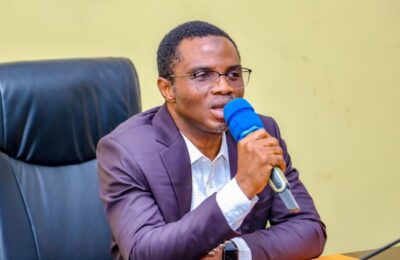Once the proud and influential backbone of Kogi State, the Igala people now find themselves at the mercy of a political wilderness. The fall from grace has been nothing short of catastrophic, stripping them of their power and influence while relegating them to a position of near obscurity. This decline is not merely a political crisis; it is an existential one, affecting the very soul of the Igala nation.
Where once they stood as titans of political power, they now face a harsh reality. Political disunity, betrayal, and the corrosive influence of personal greed have eroded the foundations of a people who once commanded respect and authority. The consequences are deep, with every aspect of life in Igala territory now stained by this collapse. The prosperity that once flowed freely has turned into a mere mirage, and the once-flourishing fields that symbolized abundance now stand as a painful reminder of what has been lost.
Food scarcity, once an occasional concern, has now become an inescapable tragedy. Basic necessities, once taken for granted, have spiraled into unattainable luxuries for many. The once-vibrant agricultural economy has been reduced to dust, and the people are left to scramble for survival. The Igala, who once flourished on the land, now face an uncertain future marked by hunger and despair.
But the most significant tragedy lies not in the external forces at play, but in the internal rot that has corroded the Igala leadership. A recent message from a concerned brother poignantly captures this reality:
“My brother, I have been following your discussions about the visible fall and disgraceful disappearance of the Igalas from the political scene in Kogi State. May God Almighty continue to keep, equip, and protect you to enable you to continue shedding tears for the drowning Igala people. Also, may He help us recognize and realize our selfishness that has catapulted us into this uncomfortable corner. Amen.”
This message encapsulates the tragedy in one simple truth: the Igala people are responsible for their own downfall. Selfishness, disunity, and the pursuit of personal gain have been the primary forces behind the dismantling of the once-unified Igala political power. Betrayals—committed by those who were entrusted with the welfare of the people—have left deep scars that will take years to heal.
The message continues with a call to action: “My brother, you have said it all unambiguously. May we now rise to translate those suggestions into practical reality if we truly desire to escape the degrading fate of eating Obadiah Bread, which is even more humiliating than the crumbs we thought we were struggling for.”
The phrase “Obadiah Bread” is a sharp metaphor. It’s a reflection of the degradation the Igala have experienced—a fall from the table of power to the floor of humiliation. But it is also a clarion call: this cannot be the end. If the Igala are to rise from this ruin, they must first recognize the depth of their degradation and take immediate steps toward redemption.
In this context, the words of Bala Onuche, another concerned brother, ring with a powerful clarity:
“You have done a nice job waking the Igala from slumber. It is disheartening when I once heard that disunity, betrayal of trust, and avarice have torn us apart. It is by the influence of some Igala that brought the past administration into power, only for them to later turn against them. Keep up with the power of your pen. I am sure it will energize a comeback that will stop at nothing but victory.”
Bala’s message resonates with painful accuracy. The disunity and betrayal he speaks of have not only fractured Igala unity but also paved the way for the rise of a leadership that does not have the welfare of the people at heart. It is difficult to forget that some of those who pushed for the past administration’s rise are the very ones who have now turned their backs on the people they promised to serve. But it is crucial that we do not dwell in despair. The pen—the power of words—can still inspire change. Through perseverance, unity, and action, we can rebuild what has been torn down.
Bala’s words serve as a reminder that change is possible. His belief in the power of the pen reflects the enduring potential for revitalization within the Igala community. The pen—the medium through which we express our frustrations, our hopes, and our vision—can serve as the catalyst for a much-needed comeback. The road ahead will not be easy, but it is achievable if we remain steadfast and resolute in our determination.
The path forward requires more than just lamentation; it demands action. A focused, collective effort is essential for the restoration of Igala power. The establishment of Okura State, a long-standing dream of the Igala people, is not merely a political aspiration—it is an urgent necessity. It will provide the foundation for self-governance, economic empowerment, and a resurgence of political influence. The Igala must demand this state not as a favor, but as an inherent right.
The hunger we face, however, is not limited to food. It is a hunger for dignity, justice, and a return to the values that once defined us. We must confront the forces of division and corruption that have brought us to this point. We must commit ourselves to rebuilding our agricultural economy, to ensuring that every Igala citizen has access to opportunity, and to restoring the integrity of our leadership.
The road to recovery will not be without its challenges, but it is not insurmountable. History has shown us that nations and communities that face adversity can rise above it. Countries like Singapore, Rwanda, and Ghana have overcome their respective crises by embracing visionary leadership, unity, and a long-term commitment to progress. The Igala can do the same, but only if we set aside our differences and work together for the common good.
As we look toward 2027, we must understand that the future of the Igala people is in our hands. We can choose to continue down the path of disunity, or we can choose to come together, reclaim our destiny, and rebuild our political and cultural influence. The choice is ours, and it must be made with a sense of urgency.
In the words of Bala Onuche, “Keep up with the power of your pen. I am sure it will energize a comeback that will stop at nothing but victory.” Let us take this to heart and rise together, not just in words, but in actions. We have the power to reclaim our legacy, to restore our place in Kogi State, and to ensure a future where the Igala people stand tall once again.
Victory is within our reach, but only if we dare to act. Let us rise to this challenge, for our future depends on it. And with God’s guidance, we will prevail.
– Inah Boniface Ocholi writes from Ayah – Igalamela/Odolu LGA, Kogi state.
08152094428 (SMS Only)




